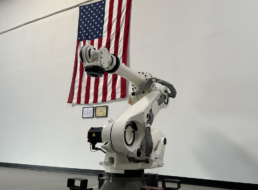Anyone in the market for an FCC satellite license? A federal judge has ordered that a financially underwater company be stripped of its most prized asset: its FCC license.
The backstory: Creditors sued Theia Group to recover hundreds of millions they loaned to the six-year-old satellite developer. Per its website, Theia seeks (sought?) to develop “the only continuously-updated, real-time, digital representation of every physical activity, process, and object on earth.” À la Planet’s constellation, but with more hyperspectral/radar sensing equipment and much more ambitious capability claims.
The current story: “There is no company today. There’s no money being spent in any meaningful way…All there really is, is a license and a business plan.” That’s what Theia’s counsel told Judge P. Kevin Castela of the Southern District of New York.
- The FCC granted Theia a license to launch 112 remote-sensing satellites in May ‘19. The license mandates that half of the constellation be on-orbit by May 2025.
H/T: New Mexico Inno has masterfully chronicled each step of this story, because Theia planned to build a 4.1M-sq.-ft. satellite facility in Albuquerque. Theia has not signed its lease with Albuquerque City Council for the land that would host the facility.
It is so ordered…
Though appointing a third-party receiver is an “extraordinary remedy” to be applied judiciously, Castela “comfortably” concluded that it was necessary in this case. Once appointed, the receiver will effectively assume control of Theia, its subsidiaries, and the crown jewel (ie, that FCC license).
Payload’s POV: A Theia creditor assesses the frequencies licensed to the company to be worth $2.4B. It’s safe to say that spectrum valuation is well beyond our purview—and we’ve already spilled more ink on this topic this week than normal.
Nonetheless, we’ll be closely watching what happens next with the FCC license. Spectrum is a finite resource. Demand is only going up and to the right for satellite operators, with growing competition from terrestrial emerging tech sectors.




